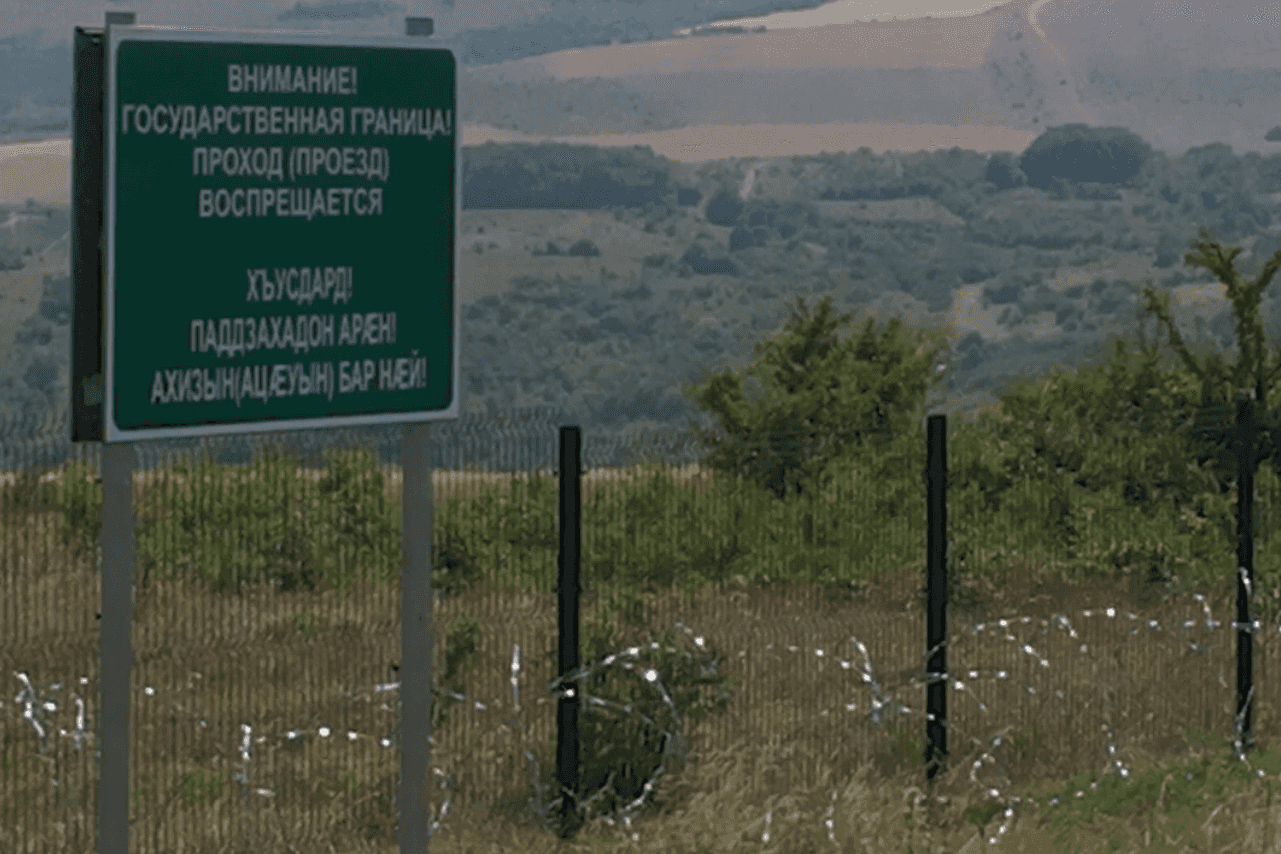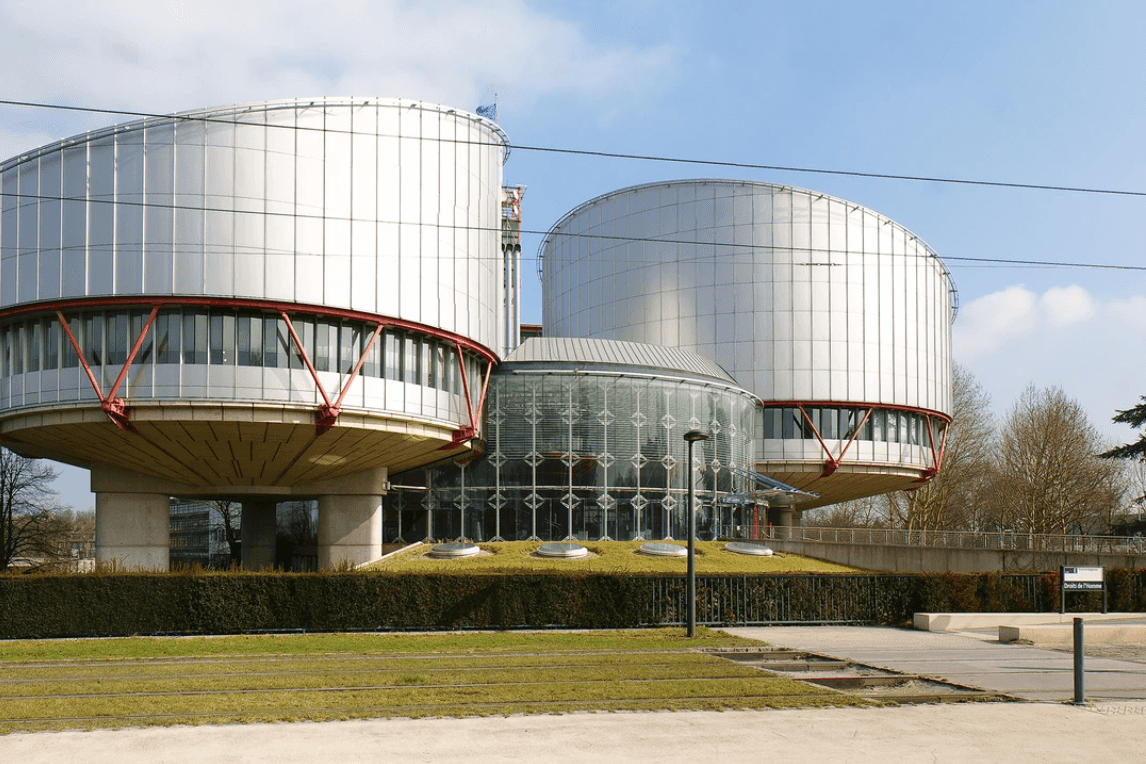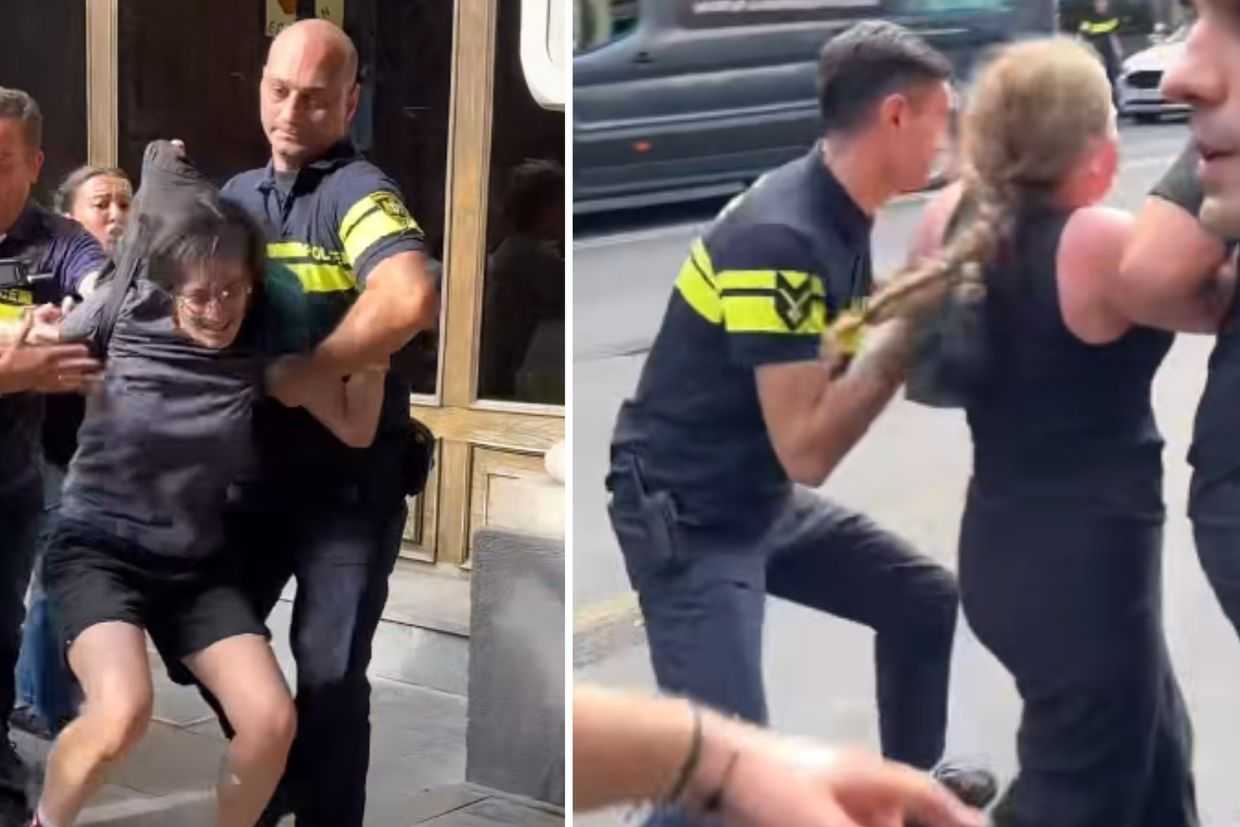
M M, 47 years old, the village of Dvani, Kareli municipality
 ‘The cost of conflict is enormous. Everyone paid that cost. I personally paid with my damaged psychology. The most precious part of what I had — the best period of my life — my young age was claimed by this conflict. This is going to haunt me all my life.’
‘The cost of conflict is enormous. Everyone paid that cost. I personally paid with my damaged psychology. The most precious part of what I had — the best period of my life — my young age was claimed by this conflict. This is going to haunt me all my life.’
‘I was born in the village of Dvani, in the Kareli district. I went to a local school from first to sixth grade. From the seventh grade, I continued in the No 4 school in Tskhinvali. I served in the Soviet army. After completing my compulsory military service, I went to the Tskhinvali Pedagogical Institute. I completed only the first year there, because shortly after this, the ethnic conflict broke out, which has led to this [relationship] between Georgians and Ossetians, these brotherly ethnic groups.’
‘The conflict started… it was the 23rd of November in 1990. And we woke up on the morning of the 24th to find out that there had been picketing in the neighboring village of Muguti. It was improvised and spontaneous, set up by just a few men. And there was also a responding picket on our side, and then a so-called “picket era” ensued. It had not yet snowballed into a harsh confrontation.’
‘You know how people acted in those days? They were still afraid of the law. But you could see that this lawfulness was already starting to shake. And this [feeling] was heating up on both sides, and it was bringing about very negative consequences for both Ossetians and Georgians. And that is how it all started to become ruined, everything that we call love, kinship, and relationships that had been cemented throughout centuries of shared lives among people of both ethnicities.’
‘People were all saturated with negativity’
‘Georgians and Ossetians were two [friendly] nations and when I was growing up, I never heard that there was a line between [them]. There were many mixed families and nobody experienced any discomfort because of this. But at this point in time, these people were standing on opposite sides of barricades, and this was truly blood-curdling for many people. It even caused many families to separate, you know, Georgian–Ossetian families with wives and husbands from different ethnic backgrounds.’
‘My village was affected the same way as all the other surrounding villages… People were all saturated with negativity. People’s mentality changed literally overnight, and it was very regressive because it was founded on rage, revenge, and ethnic hatred. It was horrible. [This] then had a malicious impact on future generations and the mentality on both sides. I reiterate — on both sides.’
‘Senseless bloodshed with victims of senseless actions’
‘The conflict slowed down. When the dust settled, people eventually started rethinking what had happened between these two ethnic groups. And many of them, even though covertly, still admitted that it was a senseless conflict. Senseless bloodshed with victims of senseless actions. And relations began to slowly get restored.’
‘First, relations were established mostly because of trade purposes. And then people starting remembering old kinship ties — remembering godparents and godchildren, cousins etc. I remember that [reconciliation] was almost final in legal terms when Chibirov was in office. They were talking about signing a treaty or something and I really hoped it would proceed… But sadly, reactionary elements reemerged. They would pop up, make inflammatory statements on both sides. And these statements started destroying the peace that had been cherished for years, and the fight for peace had to start all over again.’
‘The next phase starts from 2004. Tensions, provocations, mutual provocations ensued. Violence would erupt and snowball into crossfire, conflicts, bloodshed and it would go away eventually. And then after a few months of peace, it would come back again.’
‘The pain was piercing’
‘2008 is the most dreadful nightmare a human being can have. When this horrible war broke out, we left the village because we could not stay here anymore. Then after [almost two months] the Georgian police entered the village, the Russian army left the village, and we returned. What we saw was the destroyed village with around 50 burned houses, a plundered village almost erased from the surface of earth.’
‘There had been casualties. People had been killed. I lost my uncle to this violent confrontation. What was most difficult for me to handle was the death of my former student. He was serving in the Georgian army at that time. I was hurt with this death — the pain was piercing. He was just an 18 year old boy.’
‘My house had not been burned, but there is no “mine” or “yours” in this situation. There was no difference if it belonged to me or to others… and I think that destroyed property, casualties and damage sustained by Ossetians and Georgians throughout this conflict was all mine. Because of the senselessness of this conflict.’
‘Broken bridges between brothers’
‘In 2013, the Russian regime started borderisation. There was a border between us and the Ossetian village Muguti, agreed by our forefathers… torn apart by the Russian occupational forces. And our lands, Georgian lands, are now beyond the so-called border. My own land is now on the other side. You know what a life without land means for someone living in the village. Overall 70 hectares of land have been lost… beyond their barbed wires.’
‘The cost of conflict is enormous. Everyone paid that cost. I personally paid with my damaged psychology. The most precious part of what I had — the best period of my life — my young age was claimed by this conflict. This is going to haunt me all my life. I sustained cardiac arrest last summer. I nearly kicked the bucket. I am sure that this was due to the sufferings of many years… What I had to witness throughout all these years, it hurt me and of course it has affected my health.’
‘The material cost [of the conflict] is of less importance… the material cost is, for instance, that my family was left without land, without income. But… what we should worry about is broken bridges between brothers. What hurts me the most is that our children will grow up without ever setting foot in the streets of Tskhinvali. They will be strangers to each other and they are not going to believe that there was love and compassion between Ossetians and Georgians. This is the cost, is not it?’
‘And to avoid being biased, I should say that the cost sustained by the other side was the same. A war has a big stomach and we have to pay a lot to fill out this stomach. Both Georgians and Ossetians had to pay for this.’
‘They will open their hearts to each other’
‘Now we live in the village, [surrounded by] barbed wires. Sometimes it feels like living in a ghetto…in some sort of fenced colony. It seems to me that love, relationships, kinship, roots, are not to be overcome by barbed wire. The time will come when the barbed wire will be gone and Georgians and Ossetians will embrace each other and forget that sinister past of ours. They will open their hearts to each other and resume their shared lives.’
‘I always try to tell my children that violence and war is horrible. I try my best to help them not to think that someone is their enemy. The enemy is the one who calls on violence, hatred. A person, only because he or she is of a different ethnic background or political affiliation, cannot be an enemy.’
‘I am sure that it is just a matter of time before Georgians and Ossetians will live together again. But it will take time. We should try all possible ways and take all possible steps, reach out to everyone. I call on every progressively thinking Ossetians to stand together and tell each other that there is no alternative to peace.’
[Read from the other side of the conflict: A D, 34 years old, Tskhinval — ‘What has always been and will always be is the hatred towards armed people on the other side’]
The is an edited version of a story recorded by Goga Aptsiauri for George Mason University, with funding from USAID, and the UK Conflict, Stability, and Security Fund. All place names and terminology used are the words of the authors alone, and may not necessarily reflect the views of OC Media or George Mason University.









